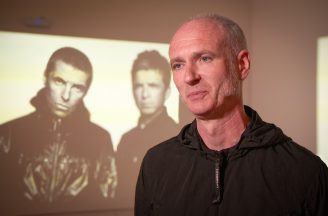A mum has opened up about her mental health battle after a brain condition left her with severe memory loss.
Michelle Brook visited the doctor with her then-husband after developing flu-like symptoms and impaired speech in the weeks leading up to her diagnosis, which saw her admitted to Aberdeen Royal Infirmary.
The former carer suffered seizures and hallucinations and was forced to have her hands tied to the bed by medics during a harrowing 11-week stay.
Doctors initially suspected she had meningitis, but a series of scans and a spinal tap revealed she had encephalitis and she was kept in for treatment.
The mum-of-three, from Inverurie, Aberdeenshire, said: “The doctors and nurses had to tie my hands to the bed as I kept pulling my cannulas out.
“My daughters would come in and I didn’t even know who they were, which upset them.
“I thought I was nursing staff and I knew everyone, even though I didn’t. I even lost the plot completely and went for my brother.
“At one point I was told that the doctors were considering referring me to the mental health hospital.”

Encephalitis stems from an inflammation of the brain and is caused either by an infection or through the immune system attacking the brain in error.
The condition affects one person every minute globally, yet according to a survey, almost three quarters of people (77%) don’t know what encephalitis is and what the symptoms are.
This lack of awareness often leads to delays in diagnosis, treatment, and poorer outcomes for patients, a charity said.
New studies from the Encephalitis Society have shown sufferers are at high risk of developing mental health issues such as depression and anxiety.
Up to 37.5% of survivors of the condition reported they had thought about or attempted suicide.
Michelle has little memory of that period of her life and said the disease “ripped her apart”.
She has also been diagnosed with epilepsy in the wake of her health battle and takes various medications to manage seizures.
Michelle suffers from anxiety and depressive episodes and is to undergo therapy with a neuropsychologist in the coming months.
She said her condition had been “debilitating” for her mental health.
Michelle said: “My partner and I sleep a lot due to our health issues. I also do crosswords and play games to keep my brain active.
“When I’m feeling low, I speak to my dad on the phone. He’s fantastic and makes me laugh.
“But life really isn’t the same. I have days where I’m so down I just don’t want to talk to anyone, not even my partner.
“I get angry at myself because I can’t remember anything. I feel like no one understands me.
“Encephalitis is an extremely horrible disease. It’s ruined my brain and everything else I would love back. My memory, my understanding of things, just everything really.
“I want people with this condition to know that they are not alone. There are people out there to help you.”
Encephalitis Society chief executive Philippa Chapman said the charity welcomed the ground-breaking new research into the condition and its links with mental health issues.
She said: “We knew about issues anecdotally, but we were surprised to see that such an alarming number of people had reported thinking about suicide.
“We need to take more action, have that light on it and raise awareness of how serious the condition is.
“There is so much that needs to be done. There needs to be more investment in resources and highlighting of support.
“Encephalitis is still a relatively unknown condition and we want to change that; eight out of ten people don’t know what it is.
“We want encephalitis to have the same level of public understanding as MND and meningitis and how it can impact people.”
Anyone affected by the issues in this story can contact Samaritans for free on 116 123, or by emailing jo@samaritans.org.
Follow STV News on WhatsApp
Scan the QR code on your mobile device for all the latest news from around the country























